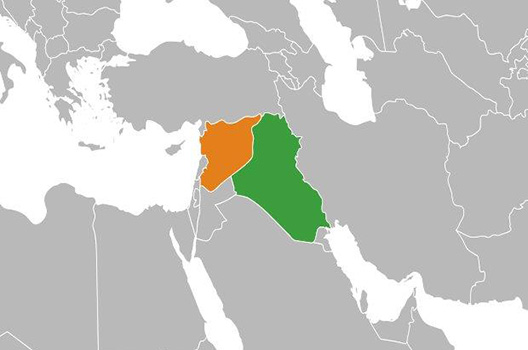 The spread of the Syria crisis to engulf Iraq was predicted and predictable. Some have called the Syria conflict a “factory for extremism.”
The spread of the Syria crisis to engulf Iraq was predicted and predictable. Some have called the Syria conflict a “factory for extremism.”
For years, many have been urging more robust US leadership and action in this crisis – not “boots on the ground” but using US military forces in a coalition with our allies and partners to help achieve clear and important US goals (e.g., deterring Syrian leader Assad, changing the balance in the conflict, facilitation of coordination and flow of military aid to vetted rebel groups).
US relative inaction in Syria has been a policy choice, and we are now seeing the consequences in:
- Greatly increased and broadening extremism, including a much more serious terrorist threat to the U.S. homeland and to Europe from returning fighters;
- Increased regional instability affecting US allies and partners;
- Increased refugees;
- Increased humanitarian suffering.
In this crisis, time has never been on our side; events have continued to play out in a way that is increasingly dangerous for US interests, which made US inaction increasingly problematic.
Some of the damage of letting this conflict fester and spread is irreversible, but it is not too late to prevent further and much more serious threats to the United States and our partners. The United States has a lot at stake if the Islamic State in Iraq and Syria (ISIS), which is so radical and abhorrent even Al Qaeda reportedly has disavowed its activities, continues to make gains, threatening the disintegration of Iraq; gaining a large, territorial base from which it can plan, train, and operate to launch terrorist attacks; and further destabilizing US allies in the region.
The growing crisis calls for a three-pronged strategy by the US and its allies and partners:
- In addition to leading much more actively in addressing the conflict in Syria itself, the United States should respond immediately and intensively to the government of Iraq’s requests to take military action against high-priority ISIS targets in Iraq.
- In return, the United States should work with the Gulf Coordination Council to press Iraqi Prime Minister Nouri al-Maliki to govern in a much more inclusive fashion and to establish over time a truly national Iraqi army.
- The United States should undertake a more concerted effort to choke off the funding for the jihadists flowing from Gulf and other sources.
If it followed such a strategy, the United States could use this “moment for strategic leadership,” as General John Allen was reported to have said today, to stanch the grave and growing damage to US interests stemming from what had been deemed a “Syria crisis” until the events of this week, but which now could be called accurately the “Syria and Iraq” crisis.
